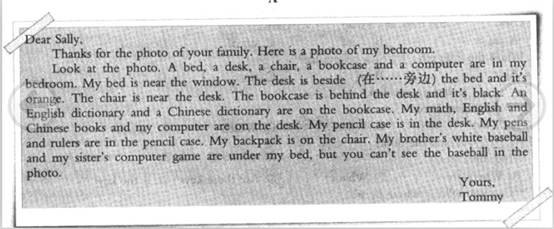
科目: 來源: 題型:閱讀理解
查看答案和解析>>
科目: 來源: 題型:閱讀理解
查看答案和解析>>
科目: 來源: 題型:閱讀理解

查看答案和解析>>
科目: 來源: 題型:閱讀理解
查看答案和解析>>
科目: 來源: 題型:閱讀理解
查看答案和解析>>
科目: 來源: 題型:完形填空
查看答案和解析>>
科目: 來源: 題型:完形填空
查看答案和解析>>
科目: 來源: 題型:完形填空
查看答案和解析>>
科目: 來源: 題型:閱讀理解
Today, more and more students surf the Internet. Whether(是否) students should surf the Internet is a hot topic. Different people have different opinions .Last week, we did a survey about students surfing the Internet. We think maybe it can help you learn a little. The survey below is from the students of No.14 Middle School. One hundred students joined in the survey.
| How often they surf the Internet | Once a day | Once a week | Hardly ever |
| 12% | 68% | 6% | |
| How long every time | Half an hour | An hour | More than an hour |
| 26% | 57% | 17% | |
| What they like doing | Playing games | Studying | Chatting with friends |
| 64% | 22% | 14% | |
| Whether they have a best friend online (在線) | Yes | No | |
| 58% | 42% | ||
| What they think of the Internet | Relaxing | Interesting and helpful(有幫助的) | Dangerous |
| 60% | 22% | 3% |
查看答案和解析>>
科目: 來源: 題型:閱讀理解

查看答案和解析>>
湖北省互聯(lián)網(wǎng)違法和不良信息舉報平臺 | 網(wǎng)上有害信息舉報專區(qū) | 電信詐騙舉報專區(qū) | 涉歷史虛無主義有害信息舉報專區(qū) | 涉企侵權舉報專區(qū)
違法和不良信息舉報電話:027-86699610 舉報郵箱:58377363@163.com